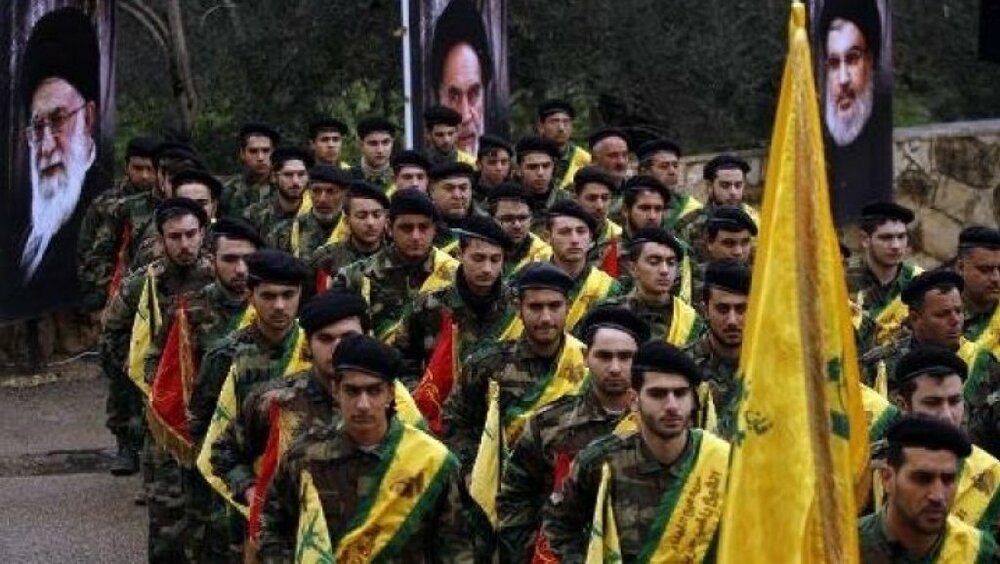BEIRUT - The British government said on Monday it plans to ban all wings of the Lebanese Resistance, aka Hezbollah "due to its destabilising influence in the Middle East," classing it as a 'terrorist organisation.'
Hezbollah has been a topic of internal political controversy in the U.K., which had already prescribed the resistance's external security unit and its military wing in 2001 and 2008 respectively.
On Friday, the ban will come into force subject to parliamentary approval. Accordingly, Hezbollah members and supporters would be prosecuted on charges of committing 'a criminal offence,' with up to 10 years jail sentence.
The Home Secretary (U.K. Interior Minister), Sajid Javid, an extreme right-wing politician of the Pakistani origin, said in a statement, "Hezbollah is continuing in its attempts to destabilise the fragile situation in the Middle East – and we are no longer able to distinguish between their already banned military wing and the political party." Javid added, "Because of this, I have taken the decision to prescribe the group in its entirety."
The UK Labour Party has allowed its MPs freedom in a vote in parliament on banning the political wing of the Hezbollah, stating that there is 'not sufficient evidence' that the organisation meets proscription.
In a statement, the Labour Party statement said, "The Home Secretary must therefore now demonstrate that this decision was taken in an objective and impartial way, and driven by clear and new evidence, not by his leadership ambitions."
For decades, Jeremy Corbyn, the opposition party leader has been a fierce critic of the Zionists' practices and has famously once called officials in Hamas and Hezbollah as friends.
Lebanon’s Hezbollah-allied Foreign Minister, Gebran Bassil, said the U.K. move would not have a negative impact on Lebanon and that Britain had informed Lebanon of its commitment to the bilateral relationship.
Lebanon's National News Agency reported Bassil commenting, "If the whole world stood up and said the resistance is terrorism, this does not make it terrorism as far as the Lebanese are concerned."
Last week, the US ambassador to Beirut expressed concern about the resistance's growing role in the Lebanese government.
For his part, the Zionist Security Minister Gilad Erdan swiftly welcomed the ban, tweeting, "All who truly wish to combat terror must reject the fake distinction between military & political wings. Now is the time for the #EU to follow suit!"
Hezbollah is a member of the Lebanese coalition government and its senior leaders have long stressed that there is no separation between the political and paramilitary wings.
The resistance's military, political and civil work is tied to the decisions of one single leadership.
The resistance has increased its political clout as it, together with its allies, won in May's elections at least 70 of the 128 parliamentary seats and has now three ministries in the Lebanese government. This representation reflects the victory of the choice of resistance and therefore the ban would make relations with Lebanon difficult.
The Zionist enemy has been swearing every time it attacked Lebanon that it was going to destroy Hezbollah and wipe it out; however, the resistance defeated it twice and is still going to be the leading defending force.
Before 2000, the enemy used to attack the Lebanese's lands and houses and the civilians were always terrified. However, the resistance now has 40,000 rockets and missiles for deterring any possible attacks by the enemy and for defending Lebanon's sovereignty. Hezbollah is committed, too, to liberate occupied Palestine.
Created in the aftermath of the 1980s invasion, Hezbollah has become the most powerful national resistance against the Zionist occupation and forced it out of Lebanon, in 2000 not entirely. The Shebaa Farms area and the northern half of Ghajar village are yet under the Zionist occupation.
In July 2006, Hezbollah also withstood over a month of aggression, in which Beirut Southern suburb was almost demolished by the Zionists, without achieving any of their desired goals.
In his recent speech, Hezbollah Secretary General Sayyed Hassan Nasrullah criticised the Arab leaders' normalisation with the Zionist enemy; stressing the failure of the Warsaw Summit. He pointed out that all attempts by the US-Zionist-Gulf alliance to hit the axis of resistance have been thwarted.
Sayyed Nasrullah, further, drew an analogy between the Warsaw 2019 and the Sharm el-Sheikh 1996 summits, that both were held against the resistance factions in Lebanon and Palestine. However, the resistance continued their military development.
Indeed, the axis of resistance's developing strength and deterrence strategy threatens all foreign military and political forces, in addition to its fighter's high morale.
Sayyed Nasrullah pointed out that the Gulf monarchies are tools of the Zionist-American project, which makes it crystal clear that the confrontation today is not sectarian but between the Zionist-American option and the resistance option.
Those monarchies have been deceived and pushed to wage their assault against Yemen, in which the imperialists and the Zionists aimed at controlling the Red Sea and Yemen's oil resources but failed due to the Yemenis' ferocious resistance and steadfastness.
Obviously, the Zionist and Imperialist project, and not Hezbollah, have a destabilising terrorist influence in the Middle East. This illegitimate project can never maintain peace but turmoil, crises, chaos, destruction, and murder.
Washington failed in Syria, Iraq, and Yemen, and it is undoubtedly looking for a new arena to apply its terrorist imperialist propaganda, which could, unfortunately, be Venezuela now.


No comments:
Post a Comment